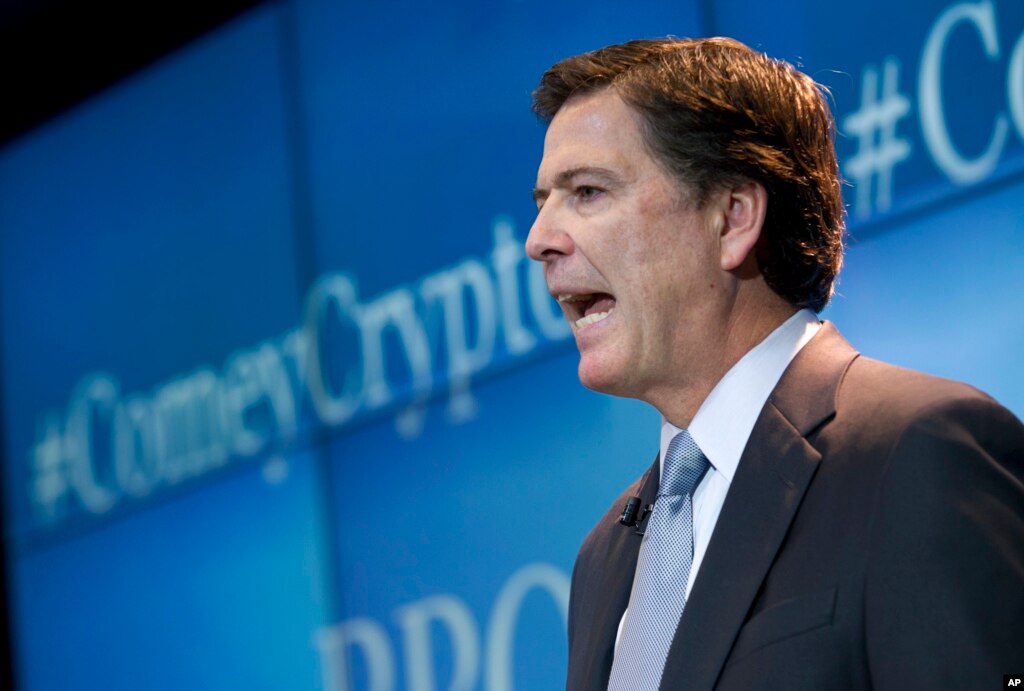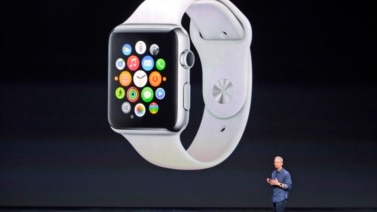
Apple Incorporated recently said it was increasing security settings on its latest operating system for the company’s wireless devices. Apple said its new encryption rules are designed to protect users from search and seizure of their iPhones.
But the changes are of concern to federal investigators in the United States. The Federal Bureau of Investigation and high-tech companies are now debating over how much personal information law enforcement agencies can demand to see.
James Comey is the head of the Bureau, better known as the FBI. He recently spoke about Apple’s new rules during a visit to the Brookings Institute in Washington. He and other FBI officials say the rules will hurt law enforcement by putting important evidence off-limits to federal investigators.
Apple released the latest operating system for iPhones and iPads last month. At the time, the company included a security change that it said would largely stop police agencies from opening the devices without the owner’s permission. The earlier operating system enabled Apple to unlock its products if police or federal investigators provided a court order.
The maker of the Android operating system, Google, quickly followed Apple’s example. The Android system is used on many wireless devices.
The change came only a few months after the U.S. Supreme Court ruled in two cases. The court declared mobile phones to be what it called “a digital record of nearly every aspect” of users’ lives. The rulings largely set the devices off limits to police except in only the rarest cases.
Privacy and civil rights activists liked the new security rules.
But Mr. Comey criticized the changed security settings as “harmful” to law enforcement. He said, “there will come a day where it will matter a great deal to innocent people that we in law enforcement can’t access certain types of data or information, even with legal authorization.”
But one encryption security expert says the argument between the two sides is largely meaningless. Alain Ghiai is chief executive officer of DigitalSafe, a secure data service based in Switzerland. He says that the FBI can already get the information it wants because of the USA Patriot Act. The U.S. Congress passed the law in 2001. It was extended in 2011.
Mr. Ghiai says the government can use the Patriot Act to force your Internet service provider to supply e-mails or other electronic records. He says it is easy for a government lawyer to get the information without a user’s knowledge or permission.
Mr. Ghiai notes that the new Apple and Google encryption policies make it difficult for police to break open a suspect’s phone. But he says nearly everything on that phone will have, at some point, been sent through an Internet or mobile phone service. He says the Patriot Act gives federal law enforcement nearly unlimited access to those data sets – all under the cover of secrecy.
FBI Director Comey knows that some people worry about the security and privacy of their information.
In his words, “some believe that the FBI has these phenomenal capabilities to access any information at any time—that we can get what we want, when we want it, by flipping some sort of switch.” “It may be true in the movies or on TV. It is simply not the case in real life,” he says.
But technology is changing far faster than the laws governing surveillance. The new encryption rules, he said, run the risk of letting criminals go free.
Mr. Ghiai agrees that the federal government should have some ability to see encrypted information on mobile devices. But he warns that measures like the Patriot Act already give the federal government access to any information that has ever been stored or shared.
I’m Jonathan Evans.
This report was based on a story from VOA’s Doug Bernard. Jonathan Evans wrote it for Learning English. The editor was George Grow.
Words in this Story
authorization – n. permission to do something
encrypt – v. to change (information) from one form to another especially to hide its meaning
measures – n. actions taken; legislative proposals
surveillance – n. the act of carefully watching someone or something especially in order to prevent or detect a crime; intelligence-gathering
Now it’s your turn to use these Words in this Story. In the comments section, write a sentence using one of these words and we will provide feedback on your use of vocabulary and grammar.


